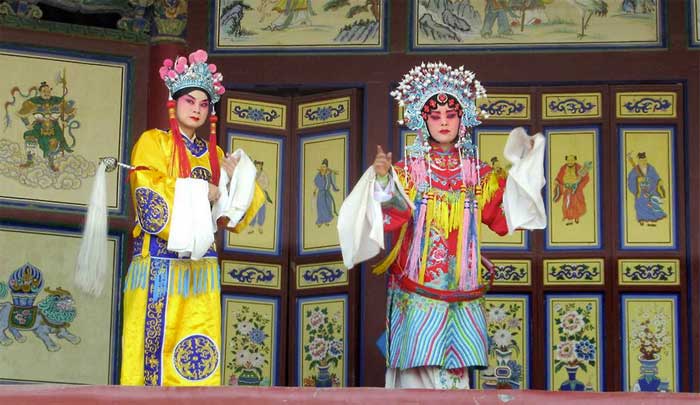The complex and mysterious art of Cantonese opera has conquered the hearts and minds of many Hong Kong's youngsters, even when they don't understand it. The future of this traditional cryptic art is secured in the younger generation.
The person behind the initiative to encourage children to listen to Cantonese is Stella Ma Man Har, director of Cha Duk Chang. Her main aim is to use Cantonese opera as a tool to teach children Chinese music and dance. This noble goal also helps keep Cantonese opera alive.
Since 2002, Cha Duk Chang teaches children in groups ranging from four to 12 years old. Instead of mimicking traditional old stories, which make little sense to the average adult with no background in Chinese history, she writes Cantonese operas that children can understand. "Of course, traditional Cantonese opera doesn't mean that it's not good," she says, "but it might not be suitable for their age." Although Ma changes the wordings, she keeps the original rhythm and songs.
Through this art, she aims at improving children's endurance, perseverance and ability to express themselves. Through Cantonese opera, children will develop holistically.
This task has not been easy. She thinks the government needs to get behind her efforts to keep Cantonese opera alive. "They've given money out, but they haven't taken another step."
In the past few years, the Cantonese Opera Development Fund has helped incorporate Cantonese opera into the new secondary education curriculum. Ma argues, however, that a suitable Cantonese opera curriculum for primary school is still missing. Many teachers only teach difficult Cantonese opera songs to children who don't understand the true significance behind the stories.
"What I fear is the counter-effect of teaching overly difficult pieces which children can't relate to or interpret," says Ma.
After some interviews, it became apparent that Ma's students took Cantonese opera out of interest after watching some of Cha Duk Chang's performances at school. The once-a-week lessons are three and a half hours long, which is quite long for four year olds.
Cantonese opera is not reserved for locals. Twelve-year-old Jessica Hunger, half British half Chinese, has been learning Cantonese opera for over six years.
Jessica recalls that it wasn't love at first sight with Cantonese opera and she didn't like it before as "everyone spoke Chinese and I wasn't very good at it." However, her passion grew and she started learning it with her current teacher Leung Mui Fong after three years she became acquainted with this form of art.
Her teacher Leung, who has been teaching Cantonese opera for over 30 years, says the difference between teaching children and adults is that children cannot understand the scripts easily, hence their movements may be more robotic and lack of emotion.
"In teaching kids, I have to bring up my childhood memories in order to better explain the meanings to them," Leung says.
Without this input, Leung believes there is a possibility the art for could be lost. "In my age, my parents were watching a lot of performances but as many well-known veteran performers are dying, less and less performances are available."
She also agrees that there isn't enough being done to promote Cantonese opera. "It's a community activity which requires a larger exposure," she says.

